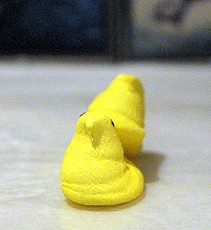Harsh colonial rule with freedom of skiing? Japanese rule from 1910 to 1945

"The colonial rule Japan did in Korea was harsh and ruthless." That's a general understanding about the history for 35 years in Korea until the end of WWII. What I can observe now is that more and more Japanese patriots seem to have been whitewashing the history.
They pick a book that describes Korea before it was colonized by Japan:
It describes:
The capital of the Korea, constituted by 250,000 people, is full of rotten smell. Because of the tradition, most of them are prohibited to build two-story houses, and consequently they had to virtually live on the ground under small thatched roofs.
The Japanese patriots seem to justify the history due to the fact that "the Korean people chose to lead an affluent life over keeping their pride as Korean."
The picture is what they call "the evidence of Korean wealth in Japanese rule". What you see is a ski resort in Kogendo, showing many Korean enjoying skiing (1934).
Wmmm, is it real? I thought they were exploited by Japanese military to feed them.
Or were they really exploited and had a freedom of skiing?
Their other claims are as follows:
"The serious discrimination in Kim dynasty was completely abolished in Japanese rule. Therefore, those who were supressed considered Japan as a saver in contrast to ruling elites."
"The Korean alphabet (Hangeul) was despised in Kim dynasty while Chinese alphabet was preferred among upper-class people. Most of the official governmental documents were also written Chinese. In 1911, Japanese government firstly established a law to popularize the Korean alphabet to citizens. The textbook of Korean was introduced in elementary schools. The aim of Japan was to discerp Korea from China, but the identity of Korea had been cultivated by the education by Japanese."
I found the dispute very fresh, and I'm going to focus on finding the true history of Korea by Japanese rule to see if they are really attempting whitewashing their history.


1 Comments:
There is BBS about which South Koreans and Japanese people can argue by machine translation mutually.
At the history corner of the BBS, South Koreans cannot refute Japanese people.
Japanese people are surprised that a South Korean historian cannot understand old reference correctly.
A South Korean historian who cannot read Chinese writing rather than a Japanese student should not be accepted to be scholars.
Post a Comment
Subscribe to Post Comments [Atom]
<< Home